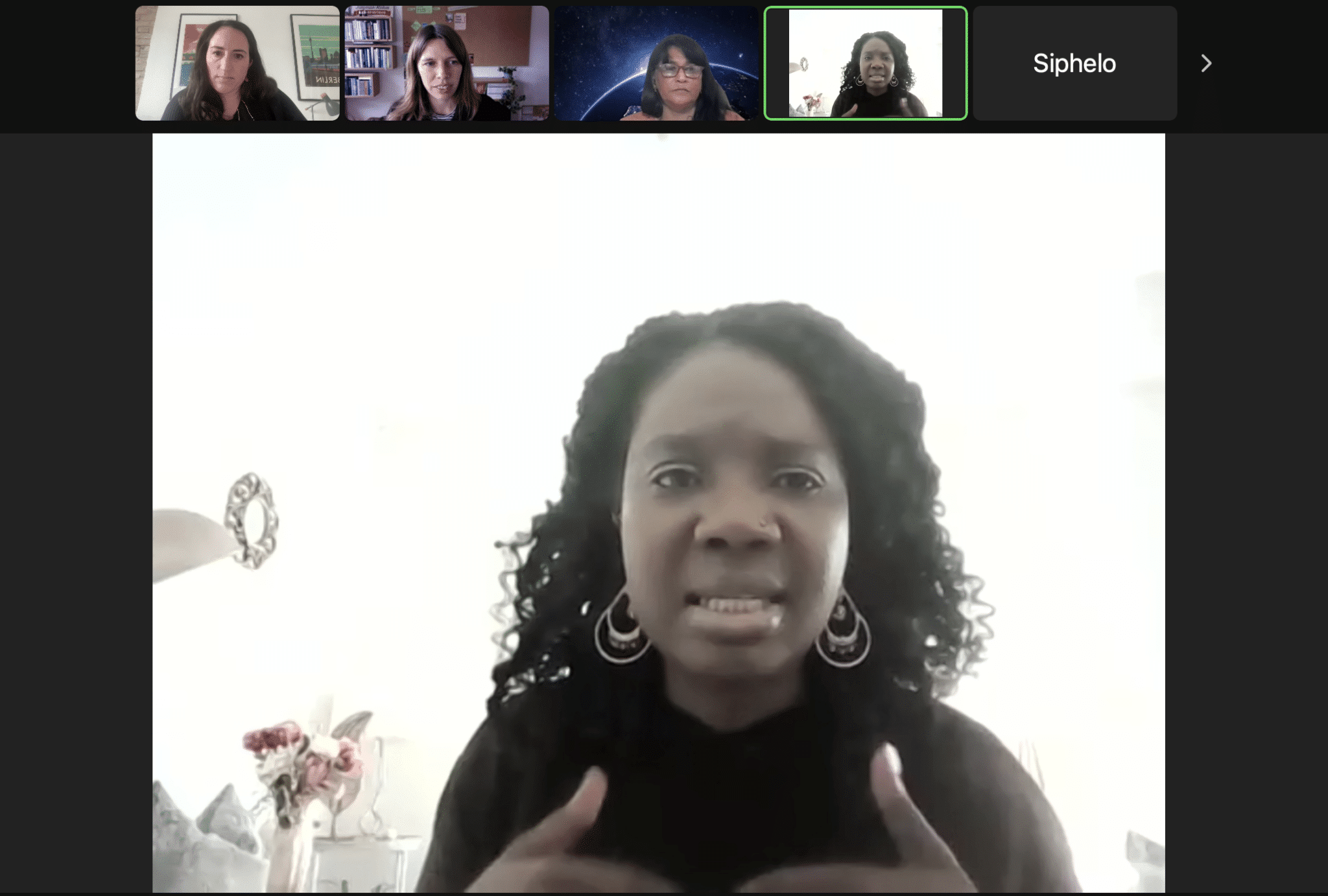On March 15, Bernadette Klausberger and Sophia Burton from the Migration Matters team led a virtual seminar on “Cross-disciplinary practices in communicating migration research” for students from the University of Johannesburg’s Sociology, Anthropology, and Development Studies department as part of their Digital Migration Studies series.
The interactive session focused on how the outreach and impact of migration research can significantly benefit from audio visual tools and the collaboration of scholars with artists and designers. Specifically, we looked at the opportunities and challenges that arise across disciplines when creating audiovisual projects, including principles of storytelling, modes of collaboration between scholars, filmmakers and (migrant) protagonists, and new formats and challenges of dissemination beyond the academic world.
We kicked off the session with an ice-breaker to gauge participants’ experience and interest in digital storytelling and shared examples from our Big Climate Movement series and Migrant Lives in Pandemic Times project. We shared insights into why we use digital storytelling at Migration Matters, for instance how storytelling can be used as a vehicle for empathy and highlight both personal stories and larger structural influences at play in people’s lives. We also explored how we can allow for complexity and nuance in short formats and the challenges those from outside the media profession face behind and in front of the camera.
The presentation was followed by reactions from the seminar discussant, Dr. Selina Mudavanhu, Assistant Professor in the Department of Communication Studies and Media Arts at McMaster University in Toronto, Canada. Dr. Mudavanhu emphasized the power of digital storytelling especially for an audience that does not have personal experience with the migration topic and how it can help animate the data to bring it to new audiences, such as policy makers and the public. Dr. Mudavanhu also explained how storytelling can recenter participants in a way that the research alone cannot that puts “people at the core”. As she put it, “The most personal it is, the more powerful it becomes”.
We received the following feedback from the participants:
“Thank you to all the speakers! I can see how powerful visual and audio storytelling can be.”
“This story telling technique in knowledge creation is very powerful to think about it, because that’s how we get to learn and hear different perspectives and experiences. Thank you so to all the speakers and indeed the more personal the story is, the more powerful. Thank you.”
“I also particularly like what you said about allowing the storytellers to tell their own stories, and present themselves the way they see themselves, instead of guiding the conversation. It definitely falls within what a lot of feminist scholars, like myself, advocate where the people involved become co-knowledge producers. Thanks so much!!”
Thank you to the Dr. Pragna Rugunanan, Professor of Sociology and Head of Department as well as our collaborator in the Migrant Lives in Pandemic Times project, for inviting us to take part in this series!
If you’re interested in inviting the Migration Matters team to present or lead a workshop, reach out to us at team@migrationmatters.me or through our website contact page.
